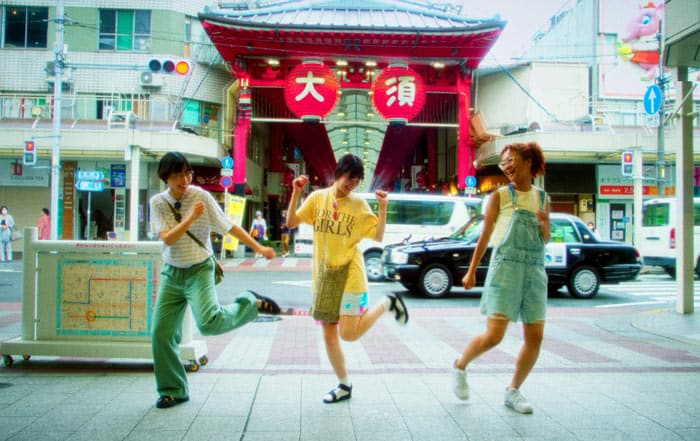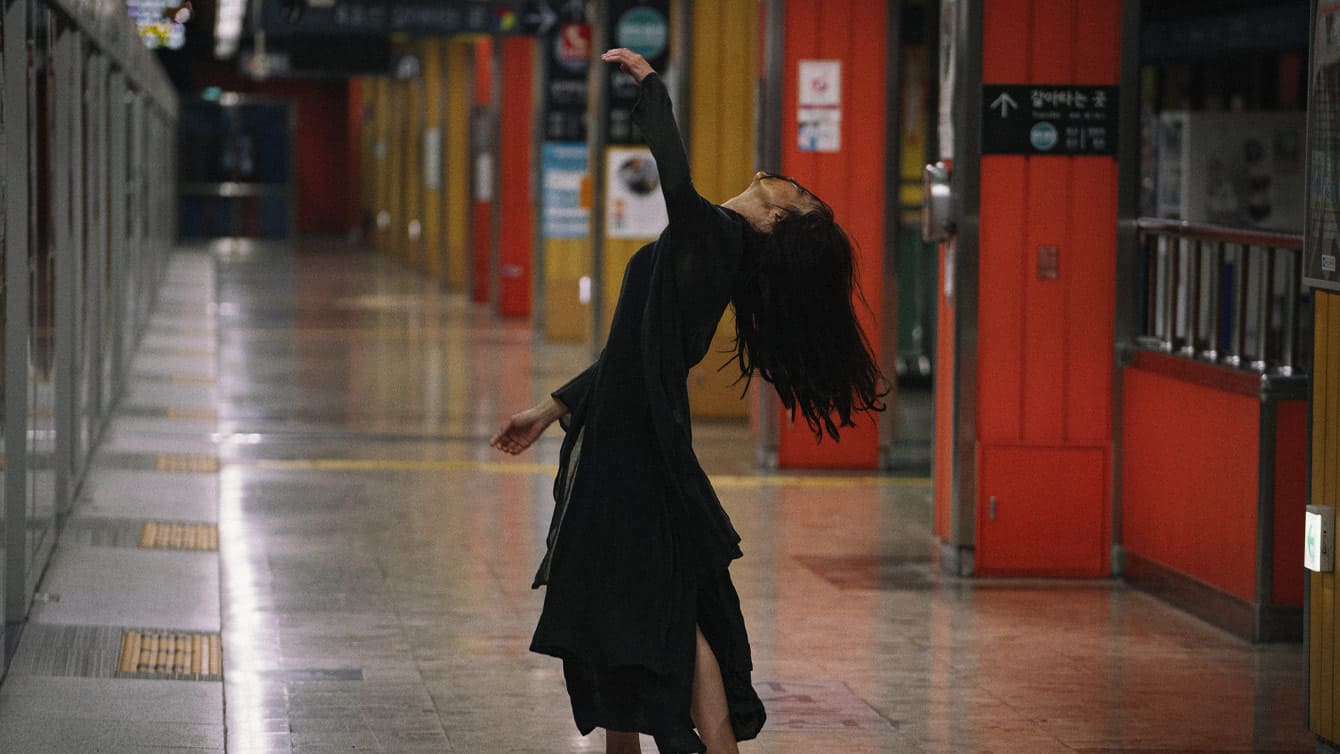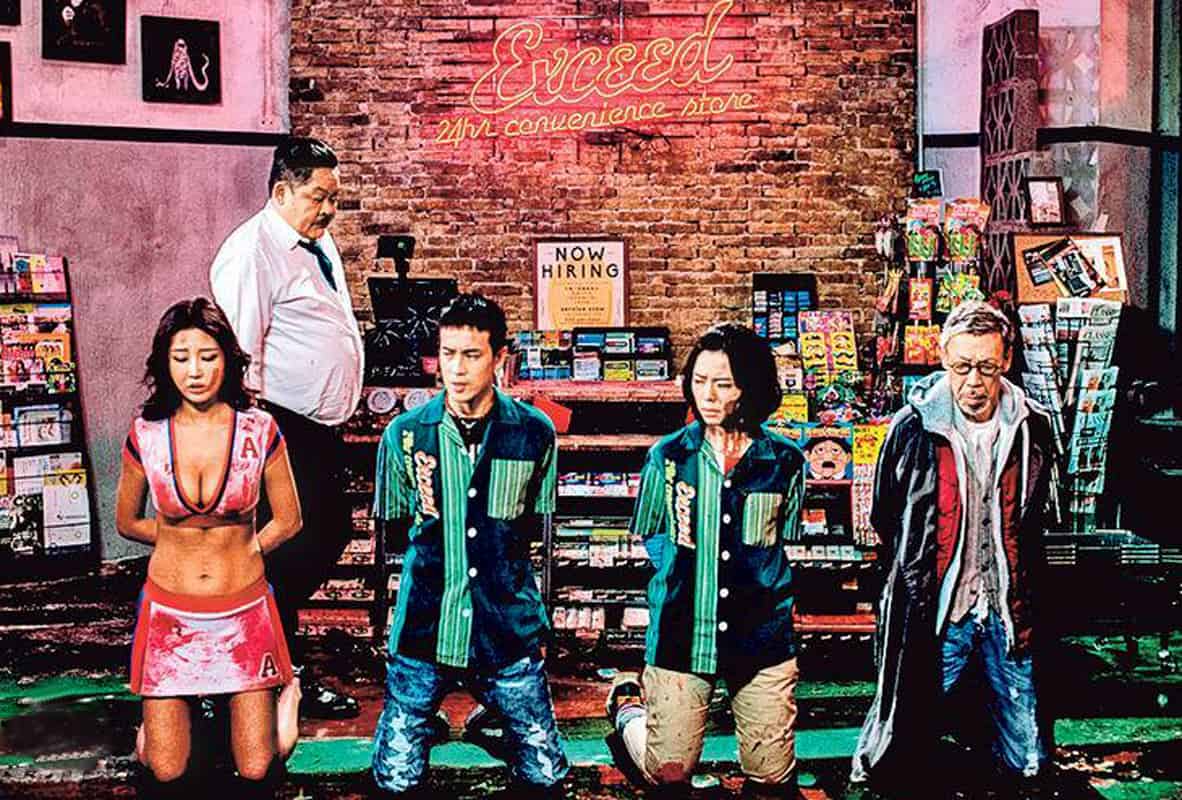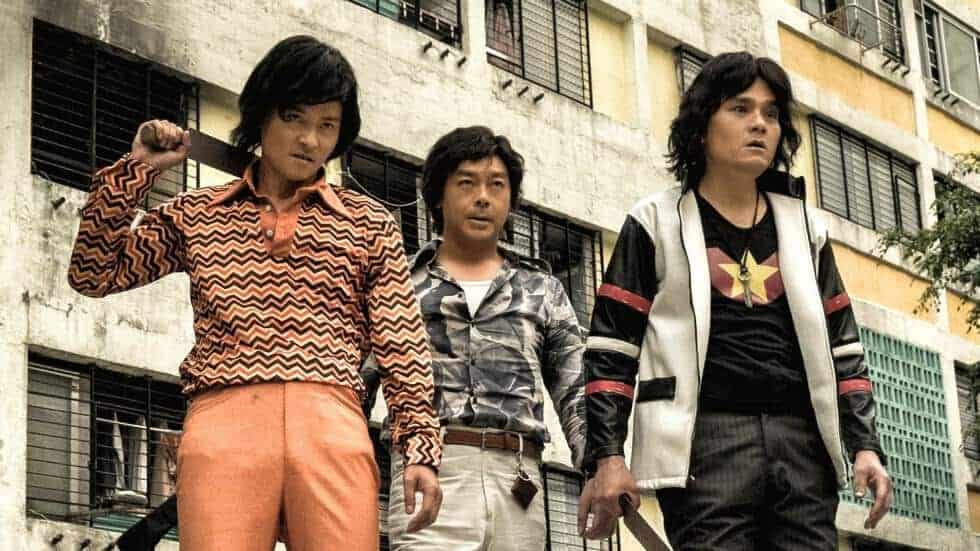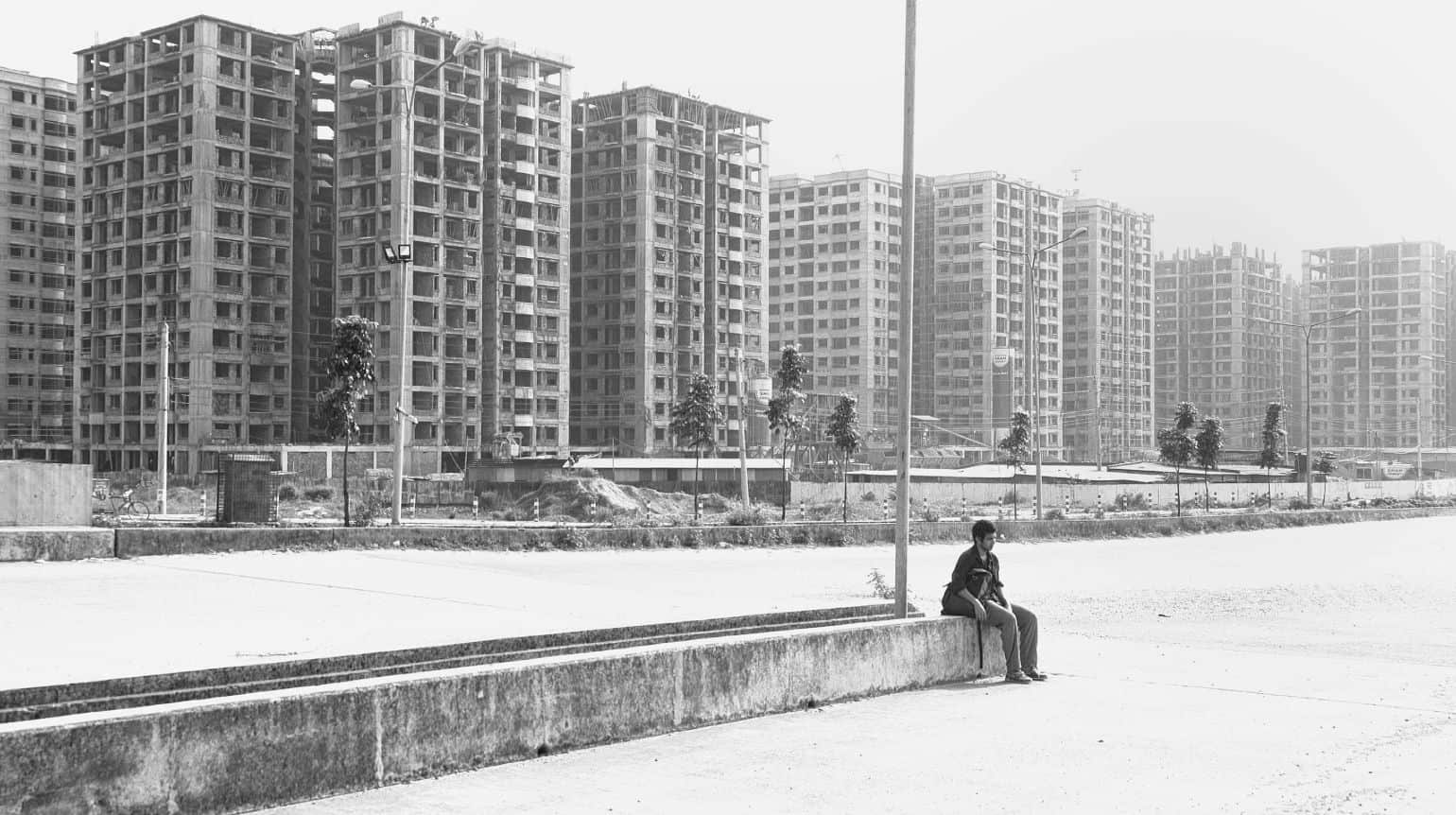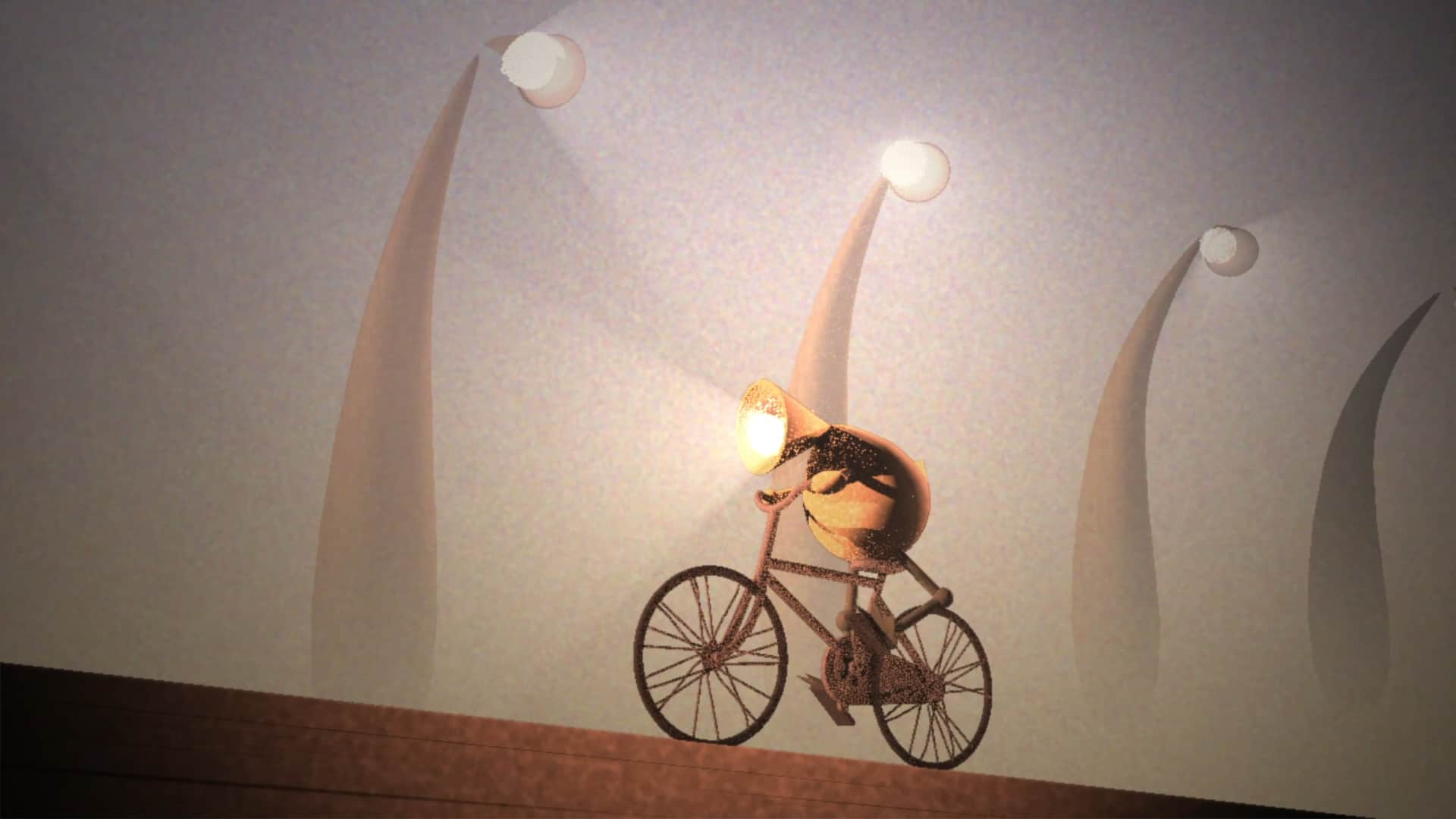Paralyzed by societal lockdowns, spiritual isolation, and deaths in the millions, the aftermath of COVID-19's rampant virulency continues to deepen the ignorance of a people left traumatized and numb by its ceaseless waves of devastation. Simultaneously fresh and distant, memories of the decade thus far are still distinctly raw, a stinging reminder of mortality, impermanence, and the absurd futility of existence. Though humanity blazes forward with its eyes firmly negating the rearview mirror, many remain immobilized in a state of ennui, desperate yet incapable of regaining control and contentment. Daisuke Miyazaki's coming-of-age drama ‘Plastic' wades into the deep end of this murky quagmire and slowly subdues itself under the crushing weight of its own hopelessness; stripped of pleasure and joy, both the film and its characters struggle to merely exist in a world brought to a complete standstill.
Plastic is screening at Japan Cuts
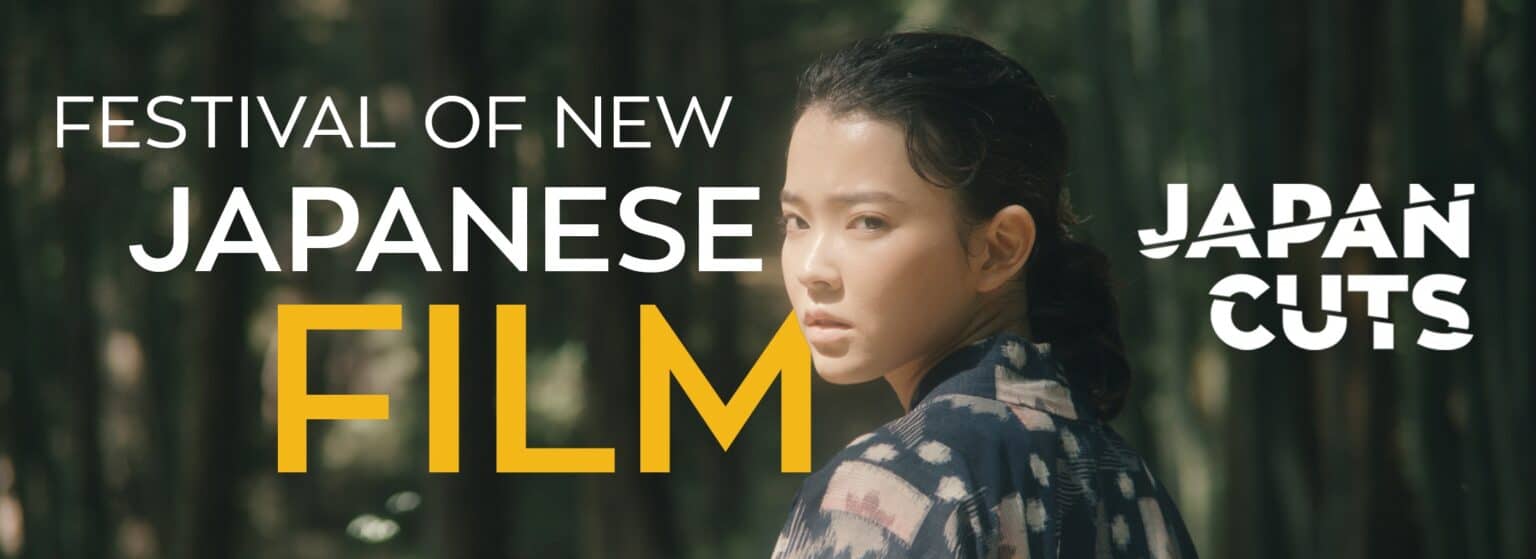
Ibuki (An Ogawa) is an obsessive fan of Exne Kedy, a rock band from the 1970s whose legacy exists to this day on vinyl; their album “Strolling Planet ‘74” is the pride and joy of Ibuki's record collection. Her chance encounter with another fan Jun (Takuma Fujie), a transfer student to her school who missed out on a chance of a record deal, sees the two bond over music, leaving the mark of their favourite band all over town, and quickly falls in love. A romance doomed by their eventual conflict of interests, the two drift apart and the tie and music that once bound them dissipate further into the distance, as the instigation of a nationwide lockdown forces both Ibuki and Jun's to reevaluate their own independent futures. It isn't until the announcement of a one-off Exne Kedy reunion show that the two face any hope of crossing paths once again.
Check also this interview
Spending the majority of its runtime in arduous limbo, ‘Plastic' is swift and absolute in its change of trajectory after barely forty minutes of establishing its two principle characters. Plagued with a stilted script and absent yet awkward chemistry between Ogawa and Fujie, Miyazaki's first act topples as soon as it begins: one year on the stark reality of the adult world brings Ibuki and Jun's romance to a near-immediate halt, with their sonic connection hanging by a thread; as the questionable spark diverges into obscurity so too do their paths, with Ibuki leaving for university and Jun struggling to make ends meet trying to get his music heard. But though the events leading up to the lackluster tumult the film then fixates upon aren't entirely forgotten, it is as though they never happened, with time and memory left in situ as the movie muddles its way from one baffling, meandering scene to the next. With its already tenuous narrative and pacing bogged down further once lockdown comes into effect, ‘Plastic' slides deeper into a state of tedious monotony.
This can hardly be determined a happy accident, for its verisimilitudinous lens and structure have been painstakingly engineered as such. Perpetually stuck in August time loses all meaning; there is no sense or purpose in a dislocated world, and as days merge into months so too does the random nature of events within ‘Plastic's exhausting nonstory. But for all the familiarities of Miyazaki's world teetering towards the periphery of our own collective memories, ‘Plastic' excels in its disassociation from itself, as all too frequently it looses itself to daydream, pulling aside the audience as either Ibuki or Jun temporarily drift away in thought. These oneiric sequences channel the film's uplifting philosophy – through music comes cosmic sustenance and psychical healing – and paradoxically sustain a level of narrative cohesion which the rest of the film struggles to match; reality, it seems, is an uninviting strain on our very essence.
With one foot in the drudgery of a COVID world and one in the phantasmagoric a la ‘All About Lily Chou-chou', ‘Plastic''s truth can be found in its music. Exne Kedy and the Poltergeists, a fictitious band masterminded by indie artist Kensuke Ide and producer You Ishihara, come fully fleshed with their own history and mythology, their music lush with an otherworldly aesthete perfectly befitting the music from the era as well as the extraterrestrial themes Ibuki is fascinated by (a message was sent to space the same year the band disbanded). So powerful is the presence and absence of Ide and Ishihara's music in Miyazaki's daunting movie that, much like in life itself, it would remain an empty, hollow affair had Exne Kedy not existed in the hearts and minds of the leads; here is where ‘Plastic's identity lies, one which rises above its own melancholy by its finale.
Whilst ‘Plastic' is far from the first Japanese film (or film in general) to center its narrative and themes around the corona times, it has the striking audacity and impetuous boldness to do away with emphasis and metaphor and leave you stranded in a past we are desperate to forget, of a present it has left us with, ruptured from a reality far beyond our grip. Once the only thing it and its characters find solace in has all but seemingly departed, so must the desperation that comes with this set up permanent residence, its weight too much to bear, its toll colossal. Miyazaki's film might be an insufferable ordeal, one where end credits usher in jubilation, but it ends on an uplifting sentiment, one of hope, a newfound sense of self. What lingers beyond the final frames is not for us to know but we can but hope it is the start of September. Or, at the very least, a whole new chapter.


